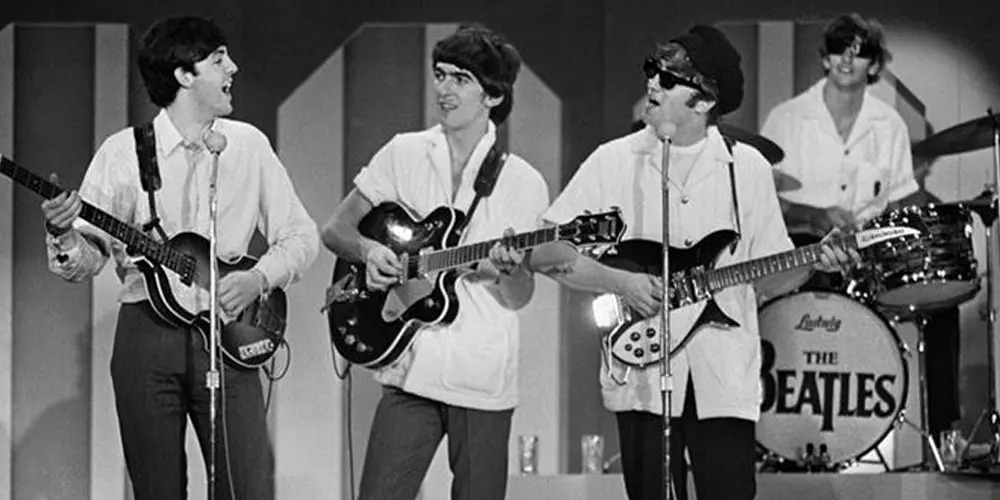How to Overcome Stage Fright - For Musicians

Many of my music students and fellow musicians ask me, “How do I get over stage fright?”
I am a professional musician, and at times I still experience stage fright. Here are some ideas and strategies which I have used in order to perform to my best ability, despite that primal and familiar fear of stage fright.
In the Weeks and Months Before a Performance:
Be prepared and plan as much in advance as you can. Practice until you can play or sing through the music without having to think about it. For most styles of music, you want to practice the piece to the point that it is on automatic pilot. This may mean practicing the song hundreds of times. To keep in that automatic zone for the actual performance, you will want to practice in a setting or a way that is similar to the way your venue will be set up. If you are using a microphone, it is best to practice with one.
When you are speaking or introducing the songs, scripting all of your banter will prevent you from unnecessarily bantering about your nerves. In my experience as a performing musician, I found that once I planned to script my banter, it became as much a creative part of the process as the music itself. I would have ideas about what to say popping up during the weeks prior to the performance. The most important thing to avoid when bantering is telling the audience that you are nervous! It will only make them worried for you and make you more nervous.
A good way to keep your nerves at bay is to develop a habit of activities that keep you relaxed. Activities such as; walking, stretching, gardening, running, and biking help the body to release endorphins that make you feel good and allow you to focus. Another calming activity is meditation. According to Johns Hopkins University’s studies on the “Mindfulness [of] Meditation”, meditation may ease anxiety and stress. Another healthy mental habit is to work on personally accepting the level of musicianship you have developed so far. You may not be The Beatles yet but you can still do your personal best!
Part of overcoming stage fright is accepting that mistakes during your performance may happen, and that these mistakes do not mean that you are failing as a musician. Mistakes are part of growth in any context and should be used as stepping stones towards larger musical goals in the future.
Fear is a large part of stage fright, and addressing the fear is the first step toward overcoming it. As a performer, taking some time to write down or reflect on what you fear most while performing is one of the keys to success. Mistakes may or may not happen; however, if they do, it is important to recognize that as a performer you have the capability to handle and overcome them, resulting in a positive learning experience.
The Day of the Performance
The day of the performance it is suggested not to frantically practice the song in order to ready yourself. The preparation you have done beforehand will ensure that you are ready. Do your regular warm up routine and run through the songs once, but avoid having a heavy practice session. In this instance, you may start to feel your fears come up. The most important thing to know is that performance anxiety is natural. “Evolutionary biologists believe [that] there may be a good reason for [the existence of stage fright]. In the past these sorts of cues (emotional responses) ... signaled the loss of status or access to resources.” (Dvorsky, 2012 np.) This is called the ‘Fight or Flight Response’.
During the Performance
In preparation for your entrance onto the stage, it is important to pause and take a calming breath, and to take a moment to remember how far you have come and why you are there. When you’ve scripted your performance as part of your rehearsal, you will have created a personal routine for how and when you step out on stage.
The most important part of a performance is connecting to the song and to the audience. When a connection to a song is made, it means that as a performer you are not only feeling but expressing the meaning of that song to your audience. In the beginning you may feel too nervous to do this; however, once you get over the initial ‘big nerves,’ you will start to fully convey the meaning of the song. This will bring your attention to the moment and result in your stage fright vanishing.
After the Performance
To really overcome stage fright you may need to work extremely hard, practice for hours each day, and perform your repertoire many times. Some people never completely get rid of the nervous feeling; however, they learn to give excellent performances even though they still experience stage fright.
After any performance, take a moment to congratulate yourself for having the courage to do something that most people fear. If you noticed some things that you felt you needed to practice, make a mental note or write it down; it will remind you of what you can work on for next time and indicates that you are working towards your full potential as a musician.
Written by: Shera Kelly (teacher at L&M Music Lesson Centre North Vancouver)
Edited by: Janet Bell (Lessons Associate)
References:
Corliss, J. (2012). Mindfulness Meditation, may ease anxiety, mental stress. Harvard Health Publications. Retrieved from: www.health.harvard.edu/blog/mindfulness-meditation-may-ease-anxiety-mental-stress-201401086967
Dvorsky, G. (2012). The Neuroscience of Stage Fright – and how to cope with it. I09, we come from the future. Retrieved from: http://io9.gizmodo.com/5950544/the-neuroscience-of-stage-fright----and-how-to-cope-with-it





